Photosynthesis and Respiration -> occurs
Occurrence in Science
Occurrence in science refers to the existence or happening of a specific event, phenomenon, or process. In the context of different scientific fields, occurrence can be related to various natural phenomena, chemical reactions, biological processes, and physical events.
Examples of Occurrence in Science:
- Biological Occurrences: This includes processes such as photosynthesis, cellular respiration, and the life cycles of organisms.
- Chemical Occurrences: These involve chemical reactions, phase changes, and the formation of compounds.
- Physical Occurrences: This encompasses phenomena like the movement of celestial bodies, weather patterns, and the behavior of fluids.
Study Guide:
To understand the concept of occurrence in science, it's important to consider the following key points:
- Observation: Pay close attention to natural phenomena, chemical reactions, and physical events that occur in the world around you.
- Documentation: Keep a record of occurrences you observe, and note any patterns or regularities.
- Analysis: Use scientific principles and theories to analyze the occurrences and understand the underlying mechanisms.
- Experimentation: Conduct controlled experiments to study specific occurrences and test hypotheses.
- Interdisciplinary Approach: Recognize that occurrences in science often involve the integration of multiple scientific disciplines, such as biology, chemistry, physics, and environmental science.
By focusing on these aspects, you can gain a deeper understanding of occurrence in science and its significance across different scientific domains.
.◂Science Worksheets and Study Guides Seventh Grade. Photosynthesis and Respiration
Worksheet/Answer key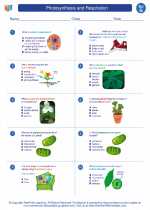 Photosynthesis and Respiration
Photosynthesis and Respiration  Worksheet/Answer key
Worksheet/Answer key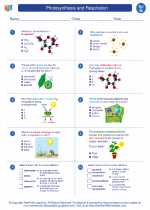 Photosynthesis and Respiration
Photosynthesis and Respiration  Worksheet/Answer key
Worksheet/Answer key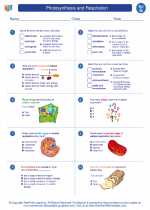 Photosynthesis and Respiration
Photosynthesis and Respiration  Vocabulary/Answer key
Vocabulary/Answer key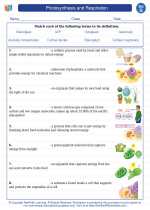 Photosynthesis and Respiration
Photosynthesis and Respiration  Vocabulary/Answer key
Vocabulary/Answer key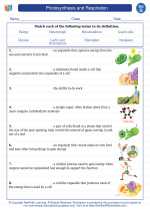 Photosynthesis and Respiration
Photosynthesis and Respiration  Vocabulary/Answer key
Vocabulary/Answer key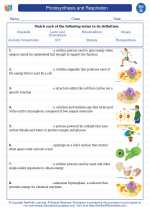 Photosynthesis and Respiration
Photosynthesis and Respiration 

 Worksheet/Answer key
Worksheet/Answer key
 Worksheet/Answer key
Worksheet/Answer key
 Vocabulary/Answer key
Vocabulary/Answer key
 Vocabulary/Answer key
Vocabulary/Answer key
 Vocabulary/Answer key
Vocabulary/Answer key

The resources above cover the following skills:
LIFE SCIENCE
Ecosystems: Interactions, Energy, and Dynamics
Examine the cycling of matter between abiotic and biotic parts of ecosystems to explain the flow of energy and the conservation of matter.
Generate a scientific explanation based on evidence for the role of photosynthesis and cellular respiration in the cycling of matter and flow of energy into and out of organisms.